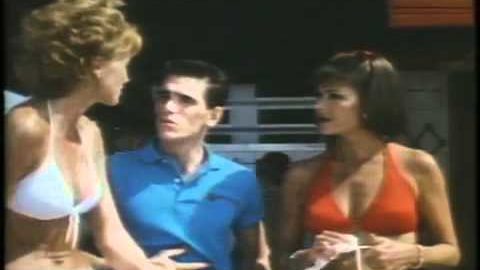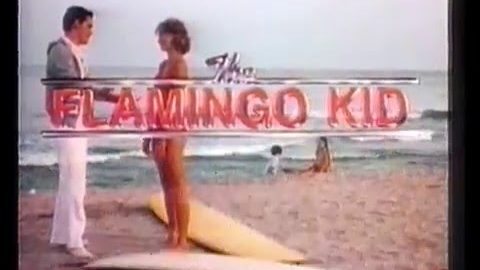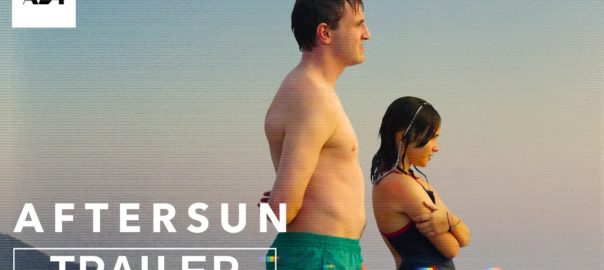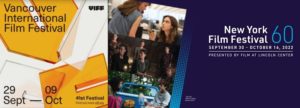
Every year towards the end of September, both our homegrown Vancouver International Film Festival and the heavily-juried New York Film Festival get underway, presenting the best in cinematic art to be found anywhere across the globe.
As occurs each year, both VIFF & NYFF share fifteen or more films, as is the case once again this year. Here are the 15 films on offer at the New York Film Festival that will also screen at the 41st annual Vancouver International Film Festival …
(film titles for each film link to VIFF’s website for the film, allowing you to purchase a ticket)
Aftersun
6:30pm, Friday, September 30th, International Village 9
9:15pm, Sunday, October 2nd, International Village 9
In one of the most assured and spellbinding feature débuts in years, Scottish director Charlotte Wells has fashioned a textured memory piece inspired by her relationship with her dad, starring Paul Mescal and Francesca Corio as a divorced father and his daughter whose close bond is quietly shaken during a brooding weekend at a coastal resort in Turkey.
Alcarràs
6:15pm, Friday, October 7th, SFU Woodwards
2:30pm, Sunday, October 9th, Vancouver Playhouse
Winner of the Golden Bear at the Berlin Film Festival, Carla Simón’s follow-up to her acclaimed childhood drama Summer 1993 is a ruminative, lived-in portrait of a rural family in present-day Catalonia whose way of life is rapidly changing.
All That Breathes
12:30pm, Sunday, October 2nd, International Village 8
9pm, Wednesday, October 5th, SFU Woodwards
In this hypnotic, poignant, and beautifully crafted documentary, New Delhi-based filmmaker Shaunak Sen immerses himself with two brothers who for years have been taking it upon themselves to save the black kite, their city’s endangered birds of prey, which the general population largely sees as nuisances despite their essential role in the city’s ecosystem.
Corsage
6pm, Monday, October 3rd, Centre for the Performing Arts
6pm, Thursday, October 6th, Centre for the Performing Arts
In a perceptive, nuanced performance, Vicky Krieps (Phantom Thread) quietly dominates the screen as Empress Elizabeth of Austria, who begins to see her life of royal privilege as a prison as she reaches her fortieth birthday. Marie Kreutzer boldly imagines her cloistered world with both realism and fanciful imagination.
De Humani Corporis Fabrica
9pm, Thursday, October 6th, The Cinematheque
6pm, Saturday, October 8th, VIFF Centre – Vancity Theatre
In their thrilling new work of nonfiction exploration, Véréna Paravel and Lucien Castaing-Taylor (Leviathan) burrow deeper than ever, using microscopic cameras and specially designed recording devices to survey the wondrous landscape of the human body.
Decision to Leave
9:15pm, Friday, September 30th, Centre for the Performing Arts
9pm, Thursday, October 6th, Centre for the Performing Arts
A Busan detective is increasingly obsessed with a murder suspect in a puzzling new case: a middle-aged businessman has mysteriously fallen to his death and his wife might be to blame. Park Chan-wook won the Cannes Best Director award for this twisting Hitchcockian detective thriller, one of his most enveloping and accomplished films.
EO
4pm, Sunday, October 2nd, Vancouver Playhouse
9:30pm, Saturday, October 8th, Centre for the Performing Arts
At age 84, legendary director Jerzy Skolimowski has directed one of his spryest, most visually inventive films yet, following the travels of a peripatetic donkey named EO who begins as a circus performer before escaping on a pastoral trek across the Polish and Italian countryside.
The Novelist’s Film
9:15pm, Tuesday, October 4th, International Village 9
For his playful and gently thought-provoking 27th feature, Hong Sangsoo takes on the perspective of a prickly middle-aged novelist, Junhee (Lee Hye-young), whose dormant creativity is stoked following a chance encounter with a famous actress (Kim Min-hee).
One Fine Morning
9pm, Sunday, October 2nd, Centre for the Performing Arts
6pm, Tuesday, October 4th, Centre for the Performing Arts
The intensely poignant and deeply personal latest drama from Mia Hansen-Løve (Bergman Island) stars Léa Seydoux as Sandra, a translator and single mother at a crossroads, torn between the romantic desire she feels for a married man (Melvil Poupaud) and her obligation towards her sick father (Pascal Greggory).
Pacifiction
9pm, Saturday, October 1st, International Village 9
5:30pm, Sunday, October 9th, Vancouver Playhouse
Catalan filmmaker Albert Serra reconfirms his centrality in the contemporary cinematic landscape with this mesmerizing, slow-building fever dream about a French bureaucrat (a monumental Benoît Magimel) drifting through a fateful trip to a French Polynesian island with increasing anxiety.
R.M.N.
9:30pm, Saturday, October 1st, Vancouver Playhouse
9pm, Thursday, October 6th, Vancouver Playhouse
Cristian Mungiu (4 Months, 3 Weeks, and 2 Days), who dramatizes the tensions of a modern Romania still beholden to dangerous traditions, returns with a gripping, mosaic-like portrait of a rural Transylvanian town riven by ethnic conflicts, economic resentment, and personal turmoil.
Scarlet
3:30pm, Thursday, October 6th, International Village 10
9pm, Saturday, October 8th, International Village 9
One of contemporary cinema’s most versatile talents, Pietro Marcello (Martin Eden) proves again he is as comfortable in the realm of folklore as he is in creative nonfiction with this enchanting period fable that delicately interweaves realist drama, ethereal romance, and musical flights of fancy.
Stars at Noon
9pm, Monday, October 3rd, Vancouver Playhouse
1pm, Saturday, October 8th, Centre for the Performing Arts
In Claire Denis’s surprising contemporary thriller, a dissolute young American journalist (Margaret Qualley) and an English businessman (Joe Alwyn) with ties to the oil industry meet by chance while on different, mysterious assignments in modern-day Nicaragua and tumble into a whirlwind romance.
Stonewalling
9pm, Saturday, October 1st, The Cinematheque
2:45pm, Tuesday, October 4th, The Cinematheque
A young flight-attendant-in-training’s plans to finish college are thrown into doubt when she discovers she’s pregnant. Not wanting an abortion, she hopes to give the child away after carrying it to term, while staying afloat amidst a series of dead-end jobs. Beijing-based wife-and-husband team Huang Ji and Ryuji Otsuka’s film is an urgent critique of a modern-day social structure that has few options for women in need of care.
Triangle of Sadness
9pm, Monday, October 3rd, Centre for the Performing Arts
9pm, Sunday, October 9th, Centre for the Performing Arts
Ruben Östlund’s wildly ambitious Palme d’Or–winning Buñuelian satire follows two hot young models (Harris Dickinson and Charlbi Dean) who rub elbows with the super-rich on a luxury cruise gone haywire.



 The Seed of the Sacred Fig, Iranian director Mohammad Rasoulof’s Special Jury and FIPRESCI Prize winner at Cannes, a mesmerizingly gripping parable in which paranoia, misogyny and rage of the Iranian state are mapped seamlessly onto an ordinary family unit;
The Seed of the Sacred Fig, Iranian director Mohammad Rasoulof’s Special Jury and FIPRESCI Prize winner at Cannes, a mesmerizingly gripping parable in which paranoia, misogyny and rage of the Iranian state are mapped seamlessly onto an ordinary family unit;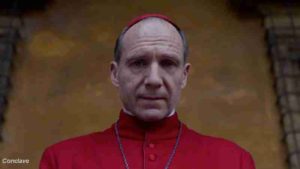

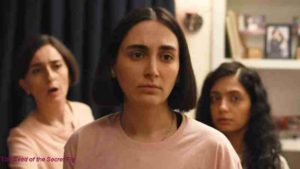 The Seed of the Sacred Fig
The Seed of the Sacred Fig